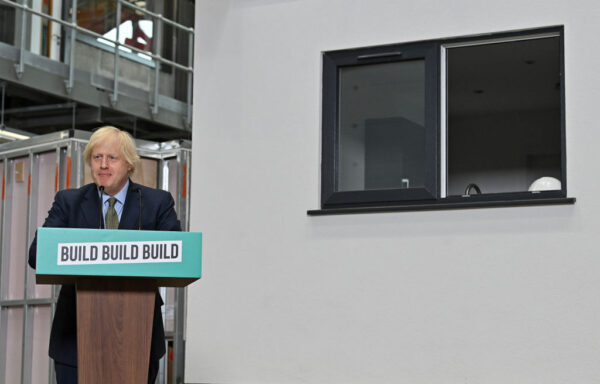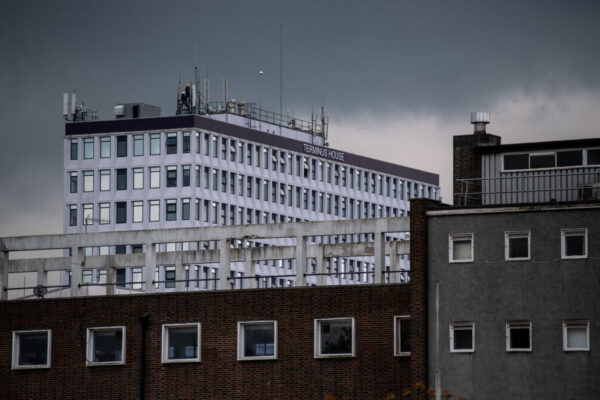The prime minister's new planning proposals would allow an increasing number of residential developments to sidestep biodiversity rules

In a speech yesterday outlining his plans to stimulate the UK’s economic recovery, Boris Johnson promised a “patchwork” of new woodlands “to enchant and re-energise the soul”.
More tree-planting would be welcome, even if green pledges from the Tory manifesto, like making new homes energy-efficient, appear to have gone missing.
But the centrepiece of the prime minister’s plan was not really a programme of public works (green or otherwise) – despite his abortive allusions to the New Deal that helped pull the US out of the Great Depression.
It was, instead, a promise to rip up planning restrictions to build new homes.
But by offering housebuilders an easy way to get around town planners, it threatens to massively undermine new legal support for biodiversity.
Specifically, the PM’s ‘New Deal’ proposes to allow more housing to be built without planning applications. The proposal is based on the controversial ‘office-to-resi’ policy, which allows developers to convert offices into homes without having to go through the planning process.
The government plans to extend this deregulation to cover a wider range of commercial buildings, as well as developments that involve demolishing “vacant and redundant residential and commercial buildings if they are rebuilt as homes”.
But this means that for an increasing number of schemes the government will allow developers to avoid an incoming legal requirement to improve biodiversity.

Schemes built under these so-called ‘permitted development’ rights would be exempt from a crucial provision in the Environment Bill, which will require any developer seeking planning approval to submit a ‘biodiversity net gain plan’.
This plan is supposed to outline how a development will improve biodiversity. They are expected to include commitments such as creating new natural habitats, open spaces and wildlife-friendly environments.
‘Office-to-resi’ schemes will be exempt from this requirement, as set out by the government in a consultation response last year, and the expansion of this policy means that so too will be a range of other developments.
This, perhaps, is what Johnson was referring to when he claimed that “newt-counting” was slowing down housebuilding.
A government spokesperson confirmed that the proposals would extend the exemption but added that they would “make development on brownfield land easier and reduce the pressure to build on greenfield land”.
But according to the government’s own analysis, the slow rate of housebuilding is due to developers building too many homes of a single tenure. This gets a little technical, but essentially builders are constructing huge sites filled mostly with homes for market sale, which they then sell only gradually, so as to be able to keep prices high.
The social impacts of the government’s existing ‘office-to-resi’ scheme are already the subject of bitter controversy. It has led to a situation some have called “human warehousing”, whereby poorer families and homeless people are all crammed together into small, cold flats.
A 2018 study by the Royal Institute of Chartered Surveyors found that 70% of homes created in this way did not meet national space standards, 77% were studio or one-bed flats and concerns had been raised about fire safety and noise pollution.
Meanwhile, the UK is already set to miss almost all of its biodiversity targets, according to a report by the government’s official biodiversity advisers.
The report found that it is making “insufficient progress” on 14 of 19 targets, including on constraining invasive alien species, increasing public awareness and funding for biodiversity, and protecting threatened species.
If the UK government is serious about pulling its weight on this vital issue, it might want to stop thinking about biodiversity as “red tape”.
Update: At 8.05 on 3/7/20 this story was updated to include a comment from the Ministry of Housing, Communities and Local Government.


Boris’ ‘New Deal’ creates a loophole for developers to ignore biodiversity
Luke Barratt